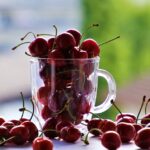Diverticulosis is a common digestive disorder that affects millions of people worldwide. It occurs when small pouches, called diverticula, form in the lining of the colon. These pouches can become inflamed or infected, leading to diverticulitis. While there is no cure for diverticulosis, following a healthy diet can help manage symptoms and prevent flare-ups. Here’s your ultimate guide to following a diet for diverticulosis that is both helpful and useful without being spammy.
1. Eat plenty of fiber
Fiber is essential for maintaining healthy digestion, and it’s especially important for those with diverticulosis. Fiber helps regulate bowel movements and prevents constipation, which can exacerbate symptoms. Good sources of fiber include whole grains, fruits, vegetables, and legumes. Aim for at least 25-30 grams of fiber per day.
2. Avoid foods that can irritate the colon
Certain foods can irritate the colon and trigger symptoms of diverticulitis. These include spicy foods, fried foods, caffeine, alcohol, and processed foods. It’s best to avoid these foods altogether or limit their intake.
3. Stay hydrated
Drinking plenty of water is crucial for maintaining healthy digestion and preventing constipation. Aim for at least eight glasses of water per day. You can also drink herbal tea or eat water-rich foods like cucumbers and watermelon.
4. Incorporate probiotics
Probiotics are good bacteria that help promote healthy digestion and boost the immune system. They can also help reduce inflammation in the colon. Good sources of probiotics include yogurt, kefir, sauerkraut, and kimchi.
5. Eat smaller, more frequent meals
Eating smaller, more frequent meals can help ease symptoms of diverticulitis. Large meals can put strain on the digestive system and cause discomfort. Aim for three to five small meals per day.
6. Consult with a healthcare professional
If you have diverticulosis, it’s important to consult with a healthcare professional before making any major changes to your diet. They can provide personalized recommendations and help you create a diet plan that works best for you.
In conclusion, following a healthy diet is crucial for managing symptoms of diverticulosis. Incorporating fiber, avoiding irritants, staying hydrated, incorporating probiotics, eating smaller, more frequent meals, and consulting with a healthcare professional are all important steps towards a healthy gut. By following these tips, you can manage your symptoms and live a healthy, happy life.




